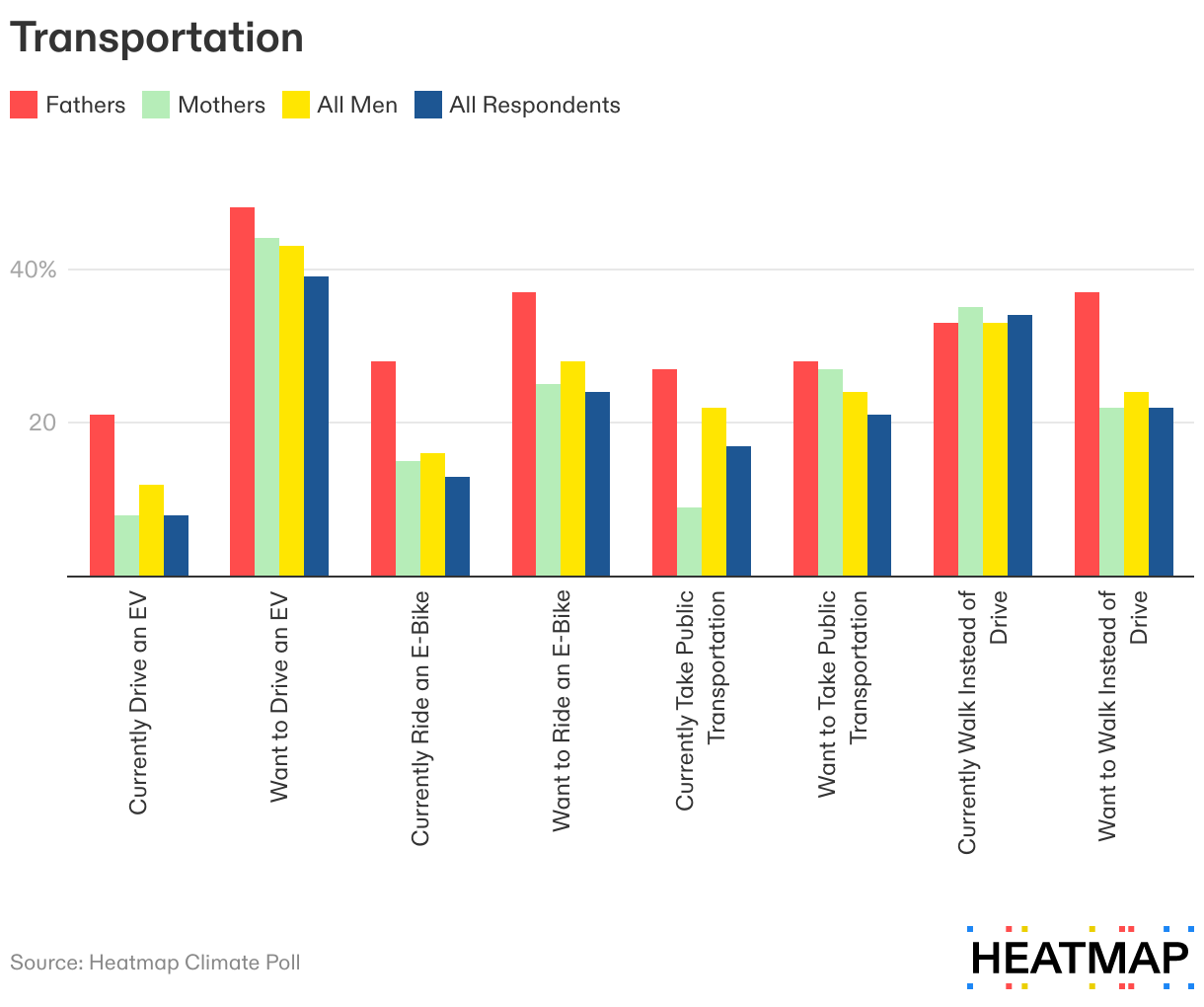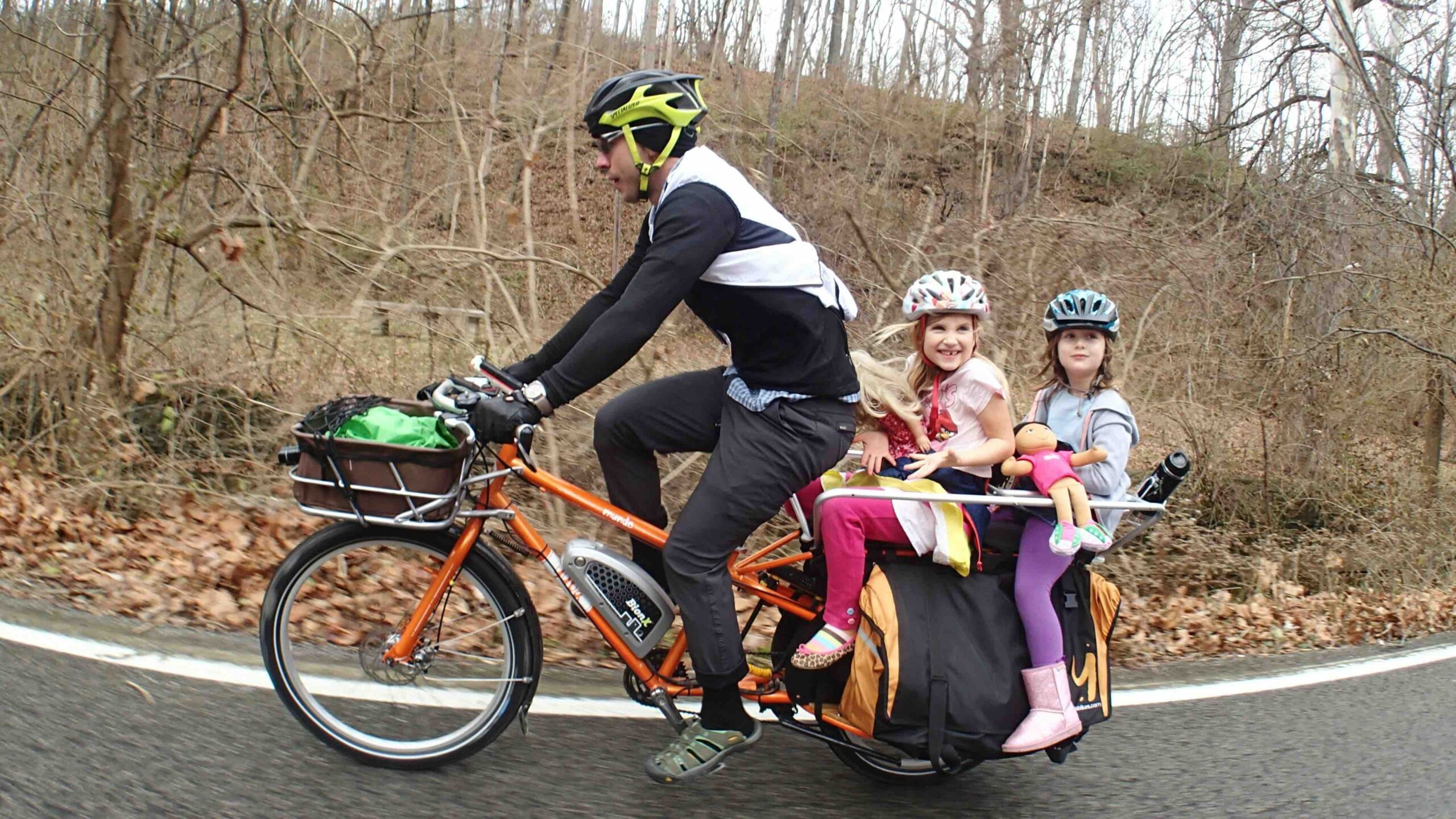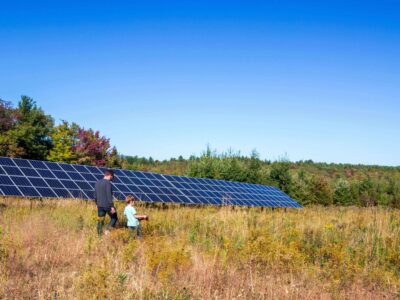As a demographic, men are perceived to be the least open to living more sustainably, but two Philadelphia dads are changing that narrative.
Climate Dads are the new parenting sensation. It’s like the old-school American “pop”: hard-working and loyal but more in touch with environmental consciousness. Think of a climate dad like the stereotypical American father, except he’s installing solar panels on the roof or insulating the basement. It has the same undertone as another dad flexing his new hand-built deck.
Ben Block and Jason Sandman started the concept. Both are in their late 30s and have young kids. In an era where parents now have to grapple with the effects of climate change, these fathers wanted to instill the values of protecting the Earth in their kids early. In a feature on climate dads in Bloomberg, Block said he needs to make sure his son can live in a world that is habitable and thriving.

Photo Courtesy Kelly Sikkema
According to consumer research conducted by Mintel in 2018 in Britain, being eco-conscious has tended to be more marketed toward women. That’s included things like heat pumps and solar panels being defined as “household products”. The report also found that in Britain, women were striving to live more ethically at a higher percentage than men.
Climate Dads challenge this notion. Since Block and Sandman met in a Philadelphia park in 2018 to start the official Climate Dads advocacy campaign, the group has soared in popularity.
Today, more than 800 fathers across 20 U.S. cities have joined the Facebook group. They do meetups with environmentally-focused activities and encourage more sustainable behaviors between each other.
Peter Olivier, another climate dad featured in Bloomberg’s story, tweeted about how men brag about installing heat pumps or switching to electric vehicles (EVs). His tweet attracted more than 2,400 likes and 149 replies, indicating there are plenty of climate-aware dads out there.
Climate Dads also arise as more stay-at-home dads are popping up in America. According to Jennifer Glass, a sociology professor at the University of Texas at Austin, more women have “jobs that are more stable” and have skills that have increased their earning potential, especially in health care and education. Coupled with a “slide in inflation-adjusted earnings” among male partners, some men have taken up the role of the primary child caregiver.
It has taken a while to shatter stereotypes about what some might call unorthodox parenting. However, there are more stay-at-home dad portrayals in media with more positive framing. Traditionally, the stay-at-home fathers were based around a laid-off worker or someone down on their luck. That’s not as true anymore. Some men have early career paths that set them up for financial independence early on, and more women can be primary income providers these days.
While the phenomena of climate dads and rising male caregivers may not be directly related, there is more awareness amongst fathers about the need to adopt sustainable habits.

Photo Courtesy Heatmap
Heatmap conducted a survey that shows that more fathers drive electric cars or ride electric bikes than mothers. Fathers were specifically one of the highest percentages of people who currently drive an EV and those who want to. The same is true for bikes.
Perhaps one of the most famous climate dads is Sebastian Vettel, the former Formula 1 champion driver. Vettel retired from racing at the conclusion of the 2022 Formula 1 season, citing his concerns about motorsports’ emissions impact. As a father of three, Vettel serves as an icon of men who have achieved a lot in their careers and maintain a commitment to sustainability.
Vettel shared what other would-be climate dads could do to join the cause recently, “It needs us, you and me, to rethink our behaviors and be happy with maybe changing some things and giving up some of the comfort. Let’s face it, it boils down to comfort often.”
Having strong parental figures with a passion for preservation certainly appear as though they are on the ascension to help instill these values in future generations.





